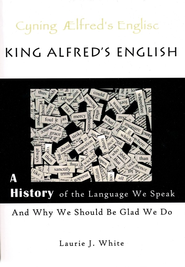Description | Exposition | Narration | Persuasion | All
 Want to inspire your teens to write? Could you use some engaging writing prompts that won’t put your teens to sleep? You’ve come to the right place!
Want to inspire your teens to write? Could you use some engaging writing prompts that won’t put your teens to sleep? You’ve come to the right place!
You’ll find prompts for opinions, descriptions, story writing, current events, prompts that are really tutorials in disguise, and much more. Complete instructions are included with each prompt.
Looking for tutorials on essay writing, proofreading, and so on? Interested in writing prompt bundles that span many grades? Click here.
Find prompts for your middle school students here.
Thanks for visiting the High School Prompts page. If you have a writing prompt you would like to submit, please contact Sharon Watson.
“You can’t wait for inspiration.
You have to go after it with a club.”
— JACK LONDON
91-Word Memoir
Could you write a story from your life in 91 words?
In honor of an elderly student who died just days before her 91st birthday, the online writing site Gotham Writer’s Workshop conducted a contest. The rules were to write a memoir, a story from your life, in 91 words. (more…)
How Point of View Changes the Feel of a Story
A story’s point of view (POV) can affect how the story feels.
For instance, The Magician’s Nephew by C. S. Lewis is written in the third-person omniscient POV: The narrator knows everything, even things that some of the characters do not. The invisible narrator in omniscient POV can tell readers what one character is feeling or thinking and then turn right around and ramble around in another character’s heart and mind and report that to us.
The omniscient point of view is out of fashion today. It followed all the major characters and reported on their happenings. We today want to journey through a story with only one or two main characters because it feels more personal that way.
Here’s a portion of the second paragraph of “The Wood Between the Worlds” in The Magician’s Nephew. The protagonist Digory has just arrived in that forest by means of a magic ring: (more…)
A Speech without an “I”
Caucuses. Primaries. Stump Speeches. Elections. Acceptance speeches. Inaugurations.
It’s that time of year again.
When newly elected president Theodore Roosevelt gave his inaugural address in 1905, he didn’t use the word “I.” You can read it here. When I read his short address, I was surprised that so many of the things he said were still true today.
To date, he is the only U. S. president to give an inaugural speech without the word “I” in it. (more…)
Jesse Owens Proved Him Wrong
Adolf Hitler, chancellor of Germany in the 1930s and 1940s, believed that Black people were inferior. He thought they were savages and had less intellectual power than white people.
So when a super-fast runner named Jesse Owens proved him wrong and won four gold medals at the 1936 Berlin Olympics, Hitler and his Nazi followers were infuriated. He said Blacks should be banned from the games because they were primitive.
Despite all the struggles Jesse Owens had with other people because of his skin color, he wrote in his autobiography, (more…)
Personal Narrative: Not Quite How I Remembered It
Have you ever visited a house you used to live in or a place you used to visit as a child?
Does it seem smaller to you or different in some way?
In this passage from “Remembrance, Ohio,” Ray Bradbury describes what it’s like to go back to a familiar place after a long time and find that it is not quite what you had remembered: (more…)
National Park Service Centennial High School Writing Prompts
Have you seen the presidents on Mount Rushmore? Walked among the giant sequoias of Yosemite National Park? Stood on the precipice of the Grand Canyon? Explored an underwater shipwreck as a Junior Ranger?
The United States’ National Park Service turned 100 in 2016, but even before it was formed, 35 national parks and monuments were already in operation. We can celebrate a rich heritage of forests, deserts, mountains, sweeping landscapes, historical sites, and other treasures saved for our education and enjoyment.
(more…)
















